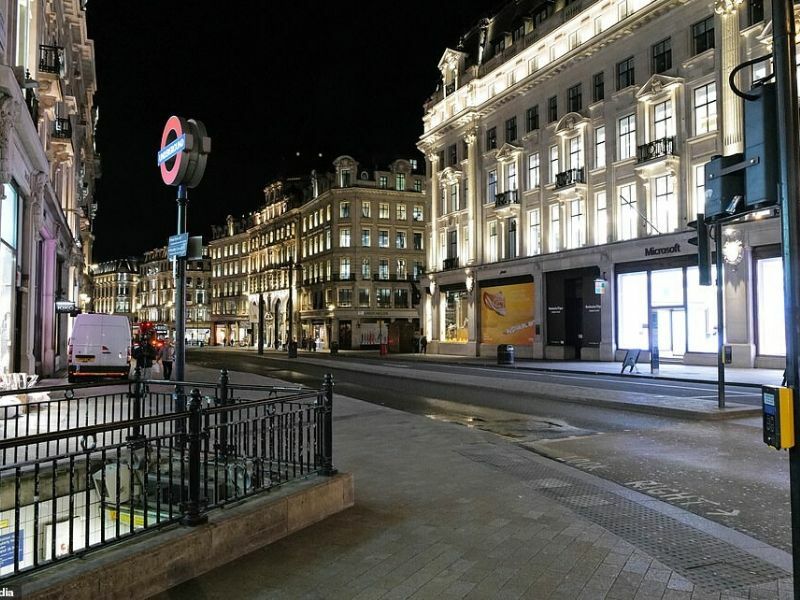How much longer until UK theatres reopen?
Posted on
| By
Nicholas Ephram Ryan Daniels
Social distancing continues after lockdown. But for how long? And will it even last or end up imploding on itself? At a time when other countries across Europe are slowly beginning to return to normal, opening shops, theatres, cinemas, and the like, why does the UK government continue to turn a blind eye to the entertainment sector? And why, despite theatre itself being a £5 billion industry, do the outcries of venues struggling to survive keep falling on deaf ears?
 The city streets of London's West End may no longer be as empty as they were during quarantine, but theatres remain as dark as ever.
The city streets of London's West End may no longer be as empty as they were during quarantine, but theatres remain as dark as ever.
When will theatres reopen in the UK?
Probably not soon enough for all of them to survive... Officially, West End and UK theatres remain dark until 28 June 2020, but some have already decided to close for even longer.
The Barbican was among the first to close until at least 30 June, cancelling Jamie Lloyd's Evita in the process. The National Theatre, whose Artistic Director Rufus Norris has warned about the venue's financial hardship, also recently decided to pull the plug on all performances until September.
Other theatres across the nation have resorted to taking even more drastic measures. Edinburgh's Royal Lyceum Theatre has decided to enter a "hibernation period" and postpone all of its shows in 2020 after announcing a financial loss of over £700,000 in ticket and trading income. The Scottish venue will completely run out funds by November 2020 without government intervention.
Meanwhile, the Curve in Leicester has cancelled all its shows until at least November, with its revival of Roman Holiday being cancelled altogether and Lover Never Dies and Cat on a Hot Tin Roof to be postponed.
Despite Equity's letter to Chancellor Rishi Sunak, urging him to provide additional financial assistance for the stage, and despite the Coronavirus Job Retention Scheme being extended until October (albeit with certain new snags), it's all frankly not enough if theatres are not given the green light to reopen soon. Even West End producer Sonia Friedman agrees, staring the second the scheme stops, "theatres will sink."
Sonia Friedman: "British theatre is on the brink of total collapse"
Sonia Friedman gave a stark warning in an article for The Telegraph this morning. According to her, "70 per cent of our performing arts companies will be out of business before the end of this year." She has called on the government to step in and save the UK's highly lucrative industry. It's still unclear whether the government will listen.
Sonia Friedman Productions have been forced to close and/or suspend such shows as The Book of Mormon, Harry Potter and the Cursed Child, Uncle Vanya, The Doctor, Leopoldstadt, and many other global productions. The producer has stated: "Theatre is incompatible with social distancing."
If the government continues not to act, we could see a worst-case scenario of theatres being closed for six months or even a year. Many have already forced to furlough large portions of their staff. Some employees have even been cheated out of the job retention scheme, including backstage staff for TINA: The Tina Turner Musical, who recently complained in an article for The Stage that their management team refused to furlough them. With mortgages and other bills to pay, many industry employees just like them have been left high and dry.
How other European countries are dealing with mass gatherings post-lockdown
It was recently announced that theatres in Italy would reopen on 15 June, a move Prime Minister Giuseppe Conte called a "calculated risk" but a "necessary step" as the economy cannot afford to wait for a vaccine.
Cinemas in Germany are scheduled to reopen on 30 May, but opera performances have already resumed, at least in Wiesbaden where an opera house recently saw an audience of 200. Meanwhile in the Netherlands, partition seating has been introduced at the Markant Uden theatre where plexiglass separate groups from each other.
The Czech Republic has also allowed for theatre, music, and other art performances and events to go ahead so long as there are no more than 100 people in attendance, which will later be increased to 300 people after 26 May.
With Europe slowly getting its culture back up and running, often in smart and innovative ways, this all begs the question: Where is the UK Government's clear plan for mass gatherings? The uncertainty and lack of organisation are doing more damage than good. We can only hope we get some clear answers soon before things really begin to boil over...